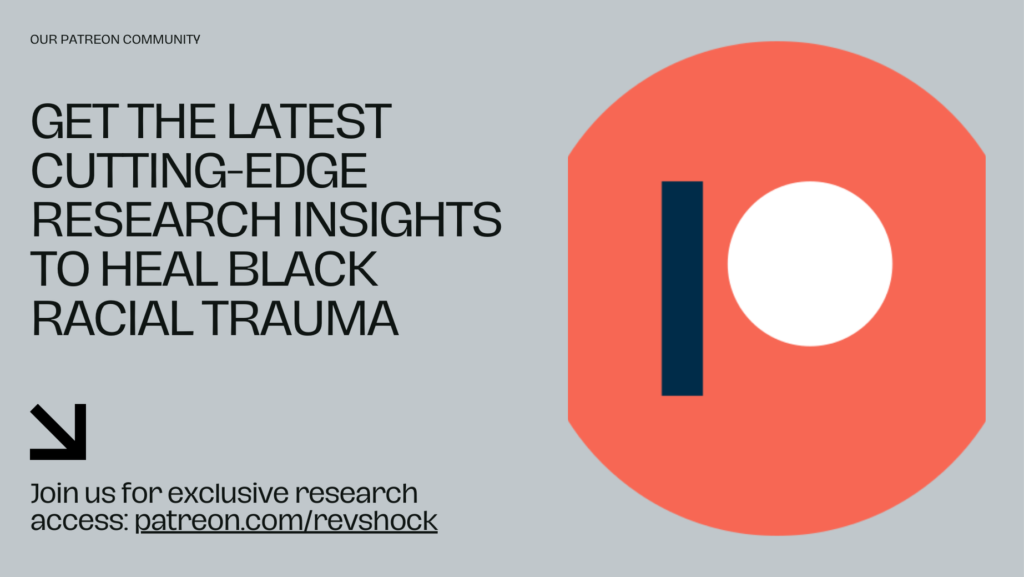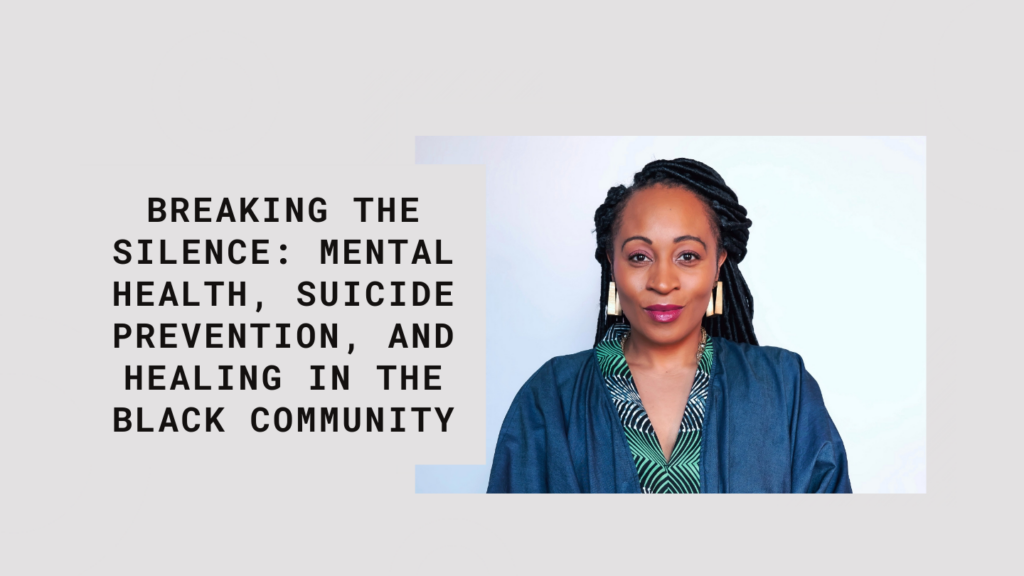
Powered By BlackTraumaGPT.com
Researched and Curated By Rev. Dr. Philippe SHOCK Matthews
(Black Trauma and Mental Health Specialist | Prompt Eng | GPT Dev | Research Scientist | Africana Phenomenologist | Black Mental Health Podcast Host)
In a powerful and moving conversation on the Black Trauma Podcast, mental health advocate Kelechi Ubozoh shares her journey through mental illness, suicide attempts, and eventual healing while highlighting critical gaps in mental healthcare for Black Americans and offering hope for those struggling. Her story illuminates both the challenges and possibilities for addressing mental health in the Black community.
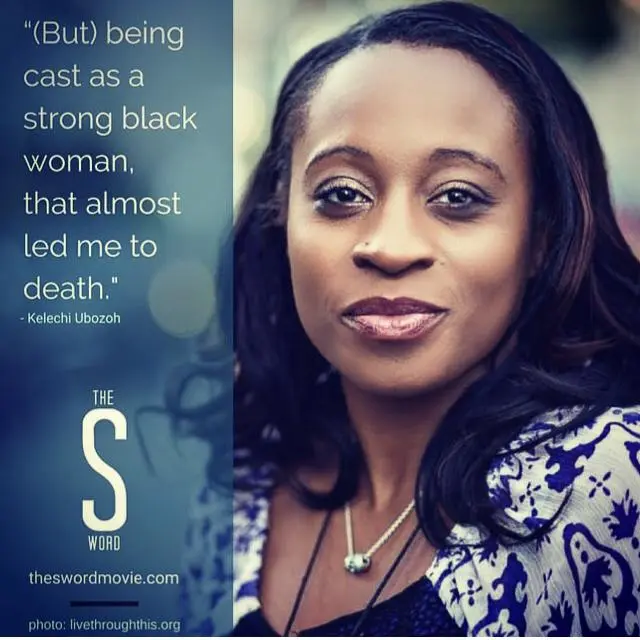
The Weight of Being “Other”
From an early age, Kelechi felt different. As a Nigerian-American growing up in Georgia, she struggled to find belonging – too “different” for her white classmates at school and not fitting in with her Black neighbors either. A self-described “goth kid” with big emotions and deep sensitivity, she earned the cruel nickname “Crazy K” from peers who didn’t understand her.
This experience of being “other” is all too common for Black youth, especially those navigating multiple cultural identities or expressing themselves in ways that don’t fit prescribed norms. The isolation and rejection can be devastating, particularly during the vulnerable teenage years when belonging feels so crucial.
When Grief Becomes Crisis
The death of Kelechi’s grandmother, who had been a rare source of unconditional acceptance, sent her into a spiral of suicidal thoughts at age 13. When she confided in a friend who told a teacher, Kelechi found herself hospitalized against her will – stripped of her possessions, including her teddy bear, and placed under 24-hour fluorescent lighting on suicide watch.
Rather than receiving help processing her grief, she was treated as a problem to be contained. The message from the mental health staff was crushing: “You have a mental illness, you’re never going to get better. You’re broken inside.” At 13, she was told she would likely never hold a job or get married.
“The only thing I learned,” Kelechi reflects, “was that I should have lied.” This formative experience taught her to hide her struggles rather than seek help – a pattern that would continue for the next decade.
The Mask of Wellness
Like many in the Black community, Kelechi became highly skilled at masking her pain. As a journalist, she learned to redirect conversations to others, creating a sense of connection while revealing nothing of herself. “Black people are really good at masking,” she notes.
This tendency to hide mental health struggles in the Black community stems from multiple sources – the stigma around mental illness, distrust of medical systems that have historically harmed Black people, and the pressure to appear strong in the face of constant racial trauma. As Kelechi points out, “We don’t just die from police. We die from being made insignificant.”
Rethinking Suicide Prevention
One of Kelechi’s most potent insights challenges conventional approaches to suicide prevention. The standard response of trying to prevent suicide through hospitalization physically often fails to address the underlying pain driving suicidal thoughts. As she quotes from another survivor: “People were so busy trying to stop me from killing myself, they forgot to help me.”
This speaks to a broader issue in mental healthcare – the focus on crisis intervention over healing and support. While crisis response has its place, Kelechi advocates for more holistic approaches that address root causes and provide genuine connection and understanding.
The Complexity of Crisis Response
The conversation tackles the complicated reality of crisis response services like 988 (the suicide prevention hotline) and 911. While 988 was created as an alternative to police response for mental health crises, Kelechi notes that some 988 call centers still work closely with law enforcement, potentially putting Black individuals at risk.
She offers practical advice for situations requiring crisis intervention:
- Consider alternative resources like Mental Health First Oakland, The Black Line, Trans Lifeline, and other services that don’t involve law enforcement
- If police involvement becomes necessary, provide clear information about the person’s state and appearance
- Request no lights or sirens
- Ask for officers not to use handcuffs
- Consider potential risks like outstanding warrants or immigration status
- When possible, have a trusted person transport the individual to services rather than calling authorities
Understanding Suicidal Thoughts Differently
Kelechi offers a remarkable reframe of suicidal thoughts, describing them as a “protective measure” – albeit a highly uncomfortable one. In her experience, these thoughts often arise when something in her life needs to change. Rather than viewing them purely as a threat, she’s learned to ask: “What needs to shift? Is it this job? This relationship?”
This perspective allows for a more nuanced understanding of suicidal ideation while emphasizing that better solutions exist. It’s about acknowledging the pain while developing healthier ways to respond to it.
The Role of Community in Healing
Finding genuine community and support has been central to Kelechi’s healing journey. She emphasizes that different people can play various roles in supporting someone through mental health challenges. Some friends might help by dropping off food, others through conversation, and others through shared activities.
“You don’t need everyone to be everything,” she explains. Recognizing that different people have different capacities for crisis support allows for building a more sustainable support network.
Cultural Connection as Prevention
A powerful insight from the conversation is the role of cultural connection in preventing suicide. As Kelechi notes, “If one of the impacts, or if one of the risk factors for suicide is racism, then what is the antidote?” She suggests that reconnecting with African cultural practices and building strong community bonds can be decisive preventive measures, even if they’re not traditionally labeled as “suicide prevention.”

Tools for Healing
Throughout the conversation, several practical tools for mental health support emerge:
- Creative expression through poetry and writing
- Karaoke and music
- Therapy and professional support
- Support groups, particularly culturally specific ones
- Physical movement and somatic practices
- Building community and connection
- Setting boundaries
- Developing coping skills
The Impact of Racial Trauma
The conversation importantly addresses the role of racial trauma in mental health. As Rev. Dr. Philippe Shock Matthews notes, “Being birthed into racism is a terminal illness.” The constant exposure to racial trauma, combined with historical and intergenerational trauma, creates unique mental health challenges for Black individuals.
This understanding helps shift the narrative from individual pathology to recognizing the systemic factors affecting Black mental health. As Matthews emphasizes, “Nothing’s wrong with you. Something happened to you.”
Moving Forward
The interview concludes with a powerful message of hope and resilience. While acknowledging the very real challenges facing the Black community – including current political threats to racial justice work – Kelechi and Matthews emphasize the extraordinary resilience of Black people throughout history.
They remind listeners that while they might feel alone in their struggles, they are part of a larger community and lineage of survival and triumph. As Matthews states, “We are the most resilient organism on this earth in recorded history. No one can go through and has gone through what we have gone through.”
Call to Action
The conversation ends with several important calls to action:
- Break the silence around mental health in the Black community
- Build and maintain support networks
- Seek out culturally competent mental health resources
- Support organizations doing this crucial work
- Share stories of both struggle and healing
- Remember that seeking help is a sign of strength, not weakness
Conclusion
This powerful conversation reminds us that addressing mental health in the Black community requires both systemic change and individual healing. It calls for new approaches to suicide prevention that center cultural connection, community support, and genuine understanding rather than just crisis intervention.
Most importantly, it offers hope to those struggling with mental health challenges, reminding them that they are not alone and that healing is possible. As Kelechi demonstrates through her own journey, it’s possible to move from survival to advocacy, using one’s experiences to help others while continuing to heal oneself.
In these challenging times, such messages of hope and practical guidance for supporting mental health in the Black community are more crucial than ever. The work of advocates like Kelechi Ubozoh helps light the way forward, showing how we can break the silence around mental health while building stronger, more supportive communities.
Links and Resources:
- Kelechi Ubozoh’s website: http://kelechiubozoh.com/
- LinkedIn – @https://www.linkedin.com/in/kelechi-ubozoh-7605846/
- The S Word documentary https://theswordmovie.com/
- We’ve Been Too Patient: Voices from Radical Mental Health by Kelechi Ubozoh and LD Green https://amzn.to/40TyBV7
- OnTrack https://bit.ly/4g28NLH
- Wildflower Alliance training https://wildfloweralliance.org/trainings/
- 988 Suicide & Crisis Lifeline https://988lifeline.org/get-help/
- Mad in America https://www.madinamerica.com/
- Mental Health First Oakland (provides non-police support for mental health crisis with text and call options) https://www.antipoliceterrorproject.org/mh-first-oakland
- The Black Line (centers Black, Indigenous, People of Color and LGBTQ folks) https://www.callblackline.com/
- Trans Lifeline https://translifeline.org/
- Wildflower Alliance peer support line https://wildfloweralliance.org/peer-support-line/
- StrongHearts Native Helpline https://strongheartshelpline.org/
- Thrive Lifeline https://thrivelifeline.org/
- LGBTQ National Help Center https://lgbthotline.org/
- Black Trauma GPT: http://BlackTraumaGPT.com
- Beam – Yolo Achille’s HeartSpace virtual support groups https://beam.community/heart-space/
- Coaching for healing justice and liberation https://healingjusticeliberation.org/
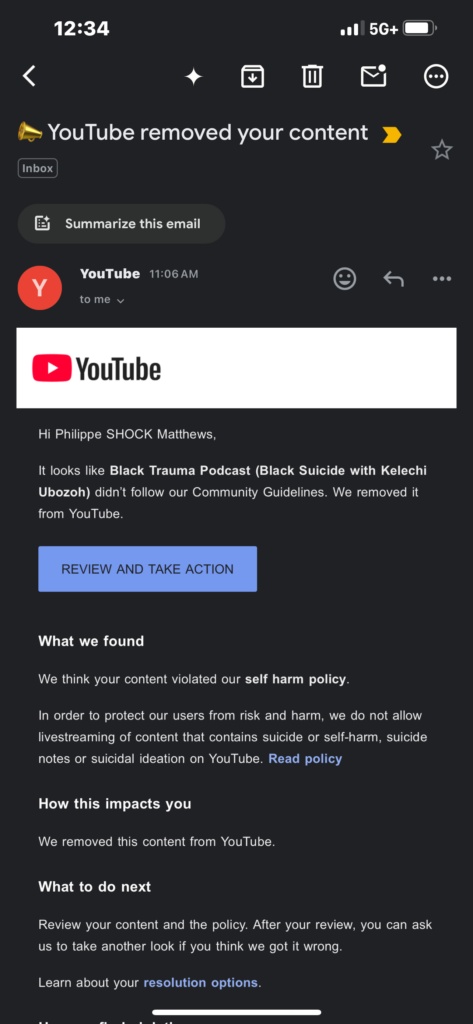
Medase, fam, the tube doesn’t like it when scholars discuss how to prevent Black suicide, so they removed my content and then reduced a 90-minute interview to 6 minutes! Below is the full episode. Enjoy!
——————
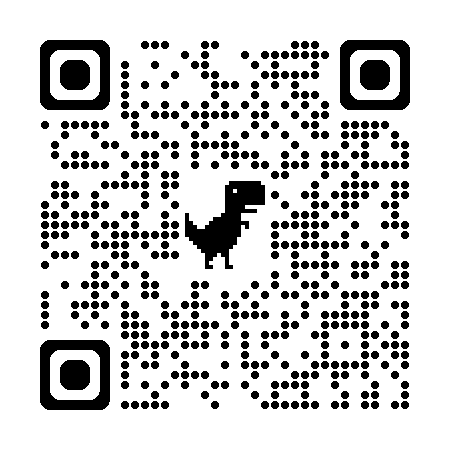
“I just completed a brief session with ChatGPT-Black Trauma. Wow! The responses I got were soooooo helpfu!.” — John Jackson (Patreon Member)
At BlackTraumaGPT.com, we aim to foster healing, understanding, and empowerment within Black communities by providing culturally sensitive education, insights, and mental health resources. We aim to deepen the collective awareness of Black trauma’s historical roots and its contemporary manifestations while guiding individuals and communities toward paths of self-care, resilience, and holistic healing. By leveraging the wisdom of Africana phenomenology and the expertise of Black scholars, we support the transformation of trauma into strength, encouraging collective growth and thriving.
IT’S TIME TO BREAK BLACK TRAUMA! Heal Thyself @ BlackTraumaGPT.com http://blacktraumagpt.com/ ASK THE QUESTION(S)!
———————
Get Social with Doc SHOCK:
PATREON | ABOUT DR. SHOCK | FLY SOLO | ACADEMIC BIO | BLOG | BLACK TRAUMA PODCAST | ENDORSEMENT | THREADS | IG | FB PAGE | PRIVATE GROUP | X | LINKEDIN | TIKTOK | PINTEREST | BLACK TRAUMA GPT | BLACK AI CONSORTIUM | BOOKS BY DOC SHOCK
